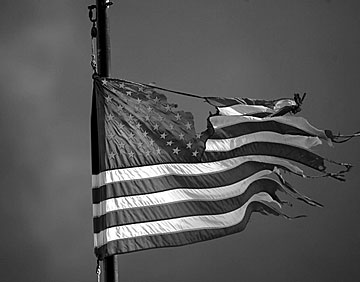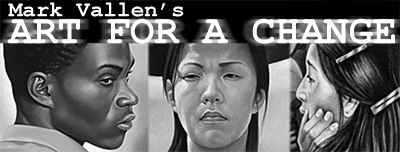Big Brother Is Watching You
 “I don’t want to live in a world where there’s no privacy and therefore no room for intellectual exploration and creativity.” – Edward Snowden.
“I don’t want to live in a world where there’s no privacy and therefore no room for intellectual exploration and creativity.” – Edward Snowden.
As of today, this web log will go on hiatus for an indefinite period as a silent protest against the colossal spying operation the Obama administration has unleashed upon the American people.
On June 9, 2013, Edward Snowden, a 29-year-old former CIA employee working for the National Security Agency (NSA), was identified by the Guardian as the whistleblower responsible for exposing the massive police state surveillance now aimed at every American.
PRISM, the surveillance program run by the National Security Agency (NSA) for the Obama White House, collects the phone records of most U.S. citizens on a daily basis; the spy operation also monitors all internet activity conducted by Americans, extracting their photographs, e-mails, audio recordings, videos, documents, chats, instant messaging, and connection logs from nine separate internet companies – AOL, Apple, Facebook, Google, Microsoft, PalTalk, Skype, Yahoo, and YouTube. In essence, the intelligence program snoops on the daily routines of hundreds of millions of Americans.
On June 7, President Obama defended his sweeping surveillance program, referring to media reports as “hype”. He depicted the spying as a “modest encroachment” on the rights of U.S. citizens. Just prior to Edward Snowden’s identity being made public, Obama’s Director of National Intelligence James Clapper, said of the whistleblower, “This is someone who for whatever reason has chosen to violate a sacred trust for this country”. I beg your pardon Mr. Clapper, but the only sacred trust that U.S. citizens have is to their Constitution. As an American artist I treasure that document – all of it – because it not only guarantees my right to free expression, it secures all of my rights as a citizen. The Fourth Amendment of the U.S. Constitution reads:
“The right of the people to be secure in their persons, houses, papers, and effects, against unreasonable searches and seizures, shall not be violated, and no warrants shall issue, but upon probable cause, supported by oath or affirmation, and particularly describing the place to be searched, and the persons or things to be seized”.
I have just acquired a copy of David McCullough’s 1776, which recounts the history of the American revolution. McCullough’s fascinating book describes the struggle as seen through the eyes of those American patriots who fought for independence from the British Empire, as well as from the perspective of the King’s men, who saw the “riotous rebels” of America as little more than “rabble in arms”. The hoi polloi of course won the cause of liberty, imperfect as it was, but today our freedoms are in extreme danger.
How ironic that democracy is imperiled by someone who promised “hope”, “change”, and “transparency”, but instead delivered a surveillance state of unprecedented scope and power; it is not quite George Orwell’s 1984 writ large, but it is very close indeed. The U.S. has reached a point of no return, it shall either advance as a democratic society or it shall descend into the abyss of authoritarian rule; it is all up to America’s “riotous rebels”.
This is undeniably a time for active protest against an imperiously intrusive surveillance state, but it is also a period for contemplation and deep reflection. Once I have finished reading McCullough’s 1776, I shall return to writing and posting commentary to this web log.

